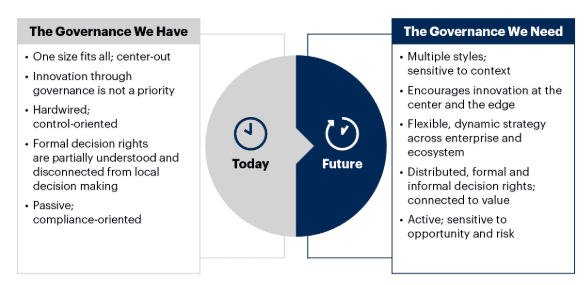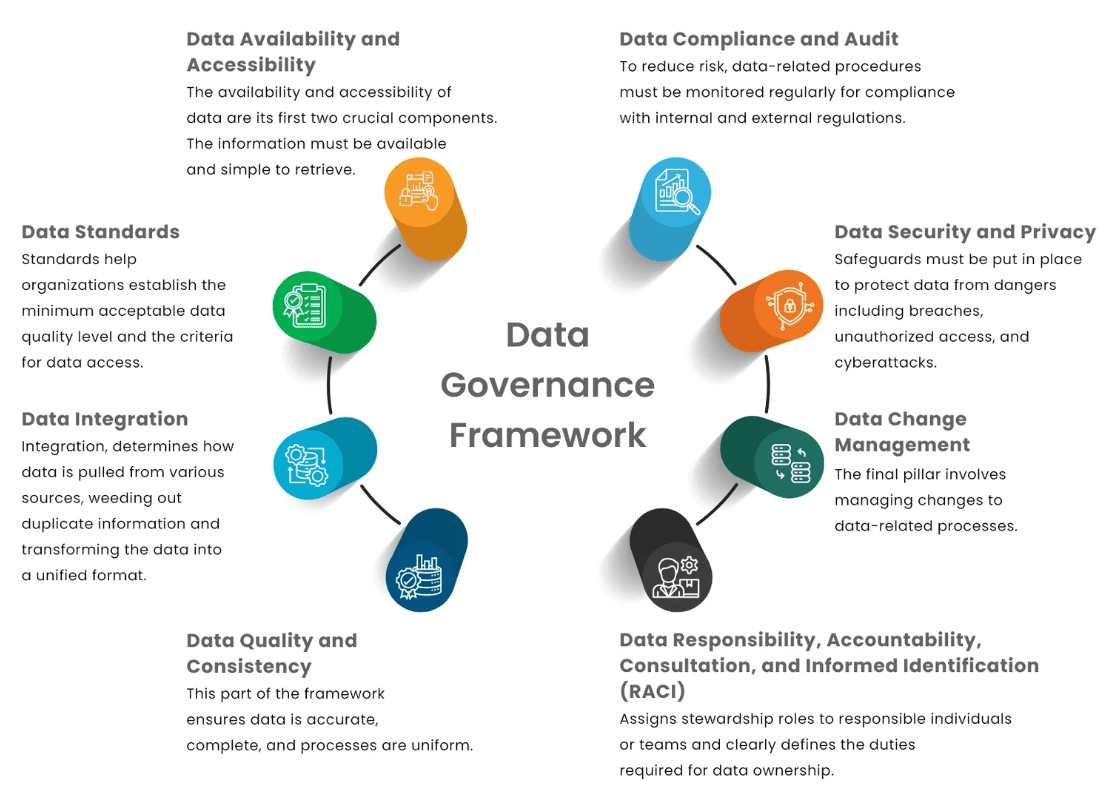
Analytics and data governance have emerged as the twin pillars of a modern, data-driven enterprise. While the proliferation of data and advanced analytics tools has created unprecedented opportunities for business growth, it has also introduced a complex web of challenges related to data quality, security, and compliance. The single most pervasive challenge in the analytics landscape is the existence of data silos. In many organizations, data is generated and stored in disparate, disconnected systems across various departments—sales data in a CRM, marketing data in an automation platform, financial data in an accounting system, and customer support data in a help desk. This fragmentation prevents a unified, 360-degree view of the business, leading to a series of cascading problems that undermine decision-making and operational efficiency.
The consequences of this foundational disconnect are profound and far-reaching:
Inconsistent Reporting: Without a single source of truth, different departments may report conflicting numbers on key metrics like revenue, customer acquisition cost, or sales pipeline value. This inconsistency erodes trust in the data and makes it impossible to align strategic initiatives across the organization.
Manual and Inefficient Processes: To generate a comprehensive report, analysts must spend an inordinate amount of time manually collecting, cleansing, and integrating data from these various sources. This is not only a slow and tedious process but also a source of human error, as data is often copied and pasted between spreadsheets and systems.
Delayed Decision-Making: By the time a unified report is compiled, the data may be days, weeks, or even months old. In a fast-paced market, decisions based on stale data can lead to missed opportunities and strategic missteps.
The root cause of data silos is often cultural and organizational, rather than purely technological. Departments tend to optimize their own workflows and toolsets without considering the broader needs of the organization. Overcoming this requires a strategic shift toward a unified data platform and a culture of data sharing and collaboration.
Data governance has become synonymous with regulatory compliance. Organizations must navigate a complex and evolving landscape of data privacy laws, such as the General Data Protection Regulation (GDPR) in Europe and the California Consumer Privacy Act (CCPA) in the United States. Failure to comply with these regulations can result in severe financial penalties, legal repercussions, and catastrophic reputational damage.
The challenges in this domain are multi-faceted:
Right to Privacy and Consent: Regulations like GDPR require organizations to obtain explicit, informed consent from individuals before collecting their data. They must also be able to demonstrate a lawful basis for processing that data and provide clear, transparent information about how the data will be used.
Data Subject Rights: These laws grant individuals significant rights over their personal data, including the right to access, rectify, and erase their information. An organization's data governance framework must be able to handle these requests efficiently and securely.
Data Portability and Security: Organizations are required to ensure the security of personal data and, in many cases, to provide individuals with their data in a portable format. This necessitates robust data security measures, including encryption and access controls, and a clear understanding of where all data resides.
The burden of compliance is not limited to legal or IT departments; it is a shared responsibility across the entire organization. A strong data governance framework provides the policies, procedures, and technological controls needed to ensure that data is handled ethically, legally, and responsibly at every stage of its lifecycle.

Zoho DataPrep: The Foundation of Data Quality
The cornerstone of a strong data governance framework is data quality, and this is where Zoho DataPrep provides its core value. DataPrep is an intuitive, AI-powered tool designed to cleanse, transform, and enrich data at scale.
Automated Data Cleansing: DataPrep can automatically detect and correct data quality issues such as duplicates, inconsistencies, and missing values. It uses AI to intelligently standardize data formats, ensuring that information from disparate sources is unified and consistent.
Data Governance Features: DataPrep includes built-in features for data governance, such as data quality monitoring, data lineage tracking, and the ability to set and enforce data policies. This provides a structured framework for maintaining data integrity and ensuring compliance.

A Strategic Partner for Your Data Journey
Implementing a comprehensive data governance and analytics solution is a complex journey that requires more than just technology. It demands a strategic partner with a deep understanding of business processes, data architectures, and regulatory requirements. Erphub specializes in helping organizations navigate this complexity and unlock the full potential of their data.
Our services are designed to provide a holistic solution that goes from strategy to implementation and ongoing optimization:
Data Strategy Consulting: We begin by working with your leadership team to define your data strategy and governance framework. We identify key business objectives and pain points and create a roadmap for a data-driven transformation.
Platform Implementation and Integration: We expertly implement and configure Zoho Analytics, Zoho DataPrep, and other relevant Zoho applications to create a unified data ecosystem that is tailored to your business needs.
Data Governance Policies and Procedures: We help you establish and document data governance policies, roles, and responsibilities, ensuring that your organization has the controls in place to maintain data quality, security, and compliance.
Training and Empowerment: We provide comprehensive training to your team, from data analysts to business users, empowering them to use the new platform effectively and fostering a culture of data literacy and accountability.
The challenges of analytics and data governance are significant, but they are not insurmountable. By adopting an integrated, strategic approach with a platform like Zoho and a trusted partner like Erphub, your organization can transform its data from a source of liability into a strategic asset that drives innovation, enhances decision-making, and fuels sustainable growth.

